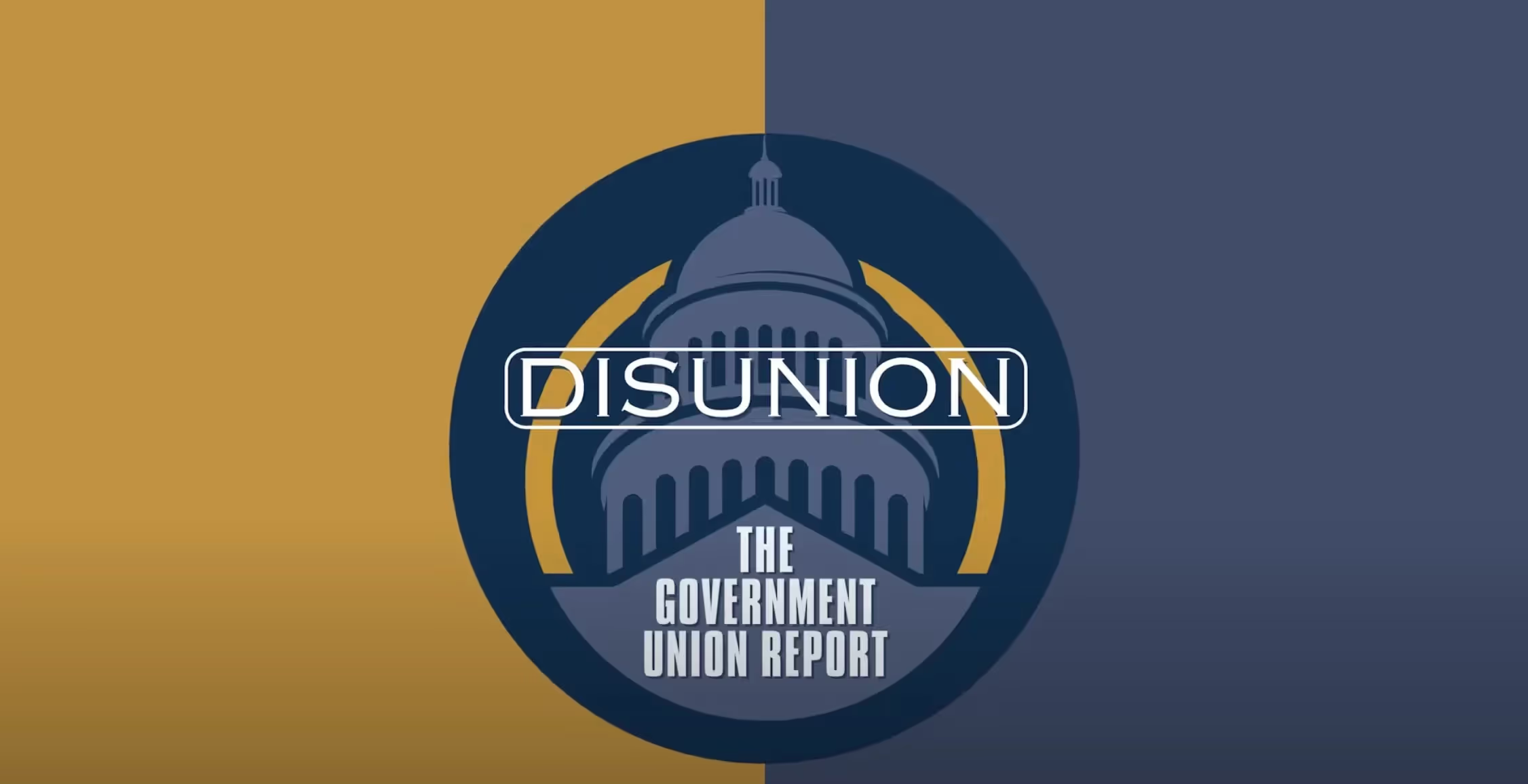.avif)
Trump's Industrial Policies Will Strangle Growth
Mixing politics with running private businesses is always a mistake.
This past week, Scott Bessent, the Secretary of the Treasury, announced that the United States was taking a leaf out of China’s (failed) industrial policy in response to that country’s decision to impose a tight regime to control the production and use of rare earth minerals that have many critical industrial applications in the United States and elsewhere. “When you are facing a nonmarket economy like China, then you have to exercise industrial policies.” Such foolish words are all too common in the Trump administration's current turn to government ownership of the means of production. China is hardly a role model for economic growth, as its own economic travails have reached the breaking point now that chairman Xi Jinping has made the fatal decision to stifle entrepreneurial activity in China, to retain total political control over a restive nation.
Instead of imitating China’s foolishness, Bessent should have moved in the opposite direction. The Chinese strategy of incipient strangulation means that China is no longer a reliable supplier of key materials. That should drive up entrepreneurs' determination everywhere to start digging for rare earths that can substitute for Chinese supplies. Mining is always a messy business with serious environmental side effects, so these efforts will necessarily take some time. But Bessent’s message should have been to hasten the environmental permitting process in which environmental claims must be balanced against critical industrial needs. These renewed development efforts should not be limited to the United States. Our trading partners could develop new sources of rare earths and enter long-term supply contracts with the United States to fill our domestic supply gap. But the odds of that happening are low unless Trump abandons for good his foolish tariff policy toward China and elsewhere to expand cross-border trade.
It should be stressed, moreover, that Bessent’s dangerous policy proposals also have unwelcome domestic repercussions. What are the concrete domestic responses that follow from his broad declaration? No one knows. Trump’s new adventure means that the federal government could be in the business of picking winners and losers by asking potential entrants into the industry to apply for various subsidies. Much of that approach was applied by President Joseph Biden, who mangled the entire process by attaching so many unrelated conditions to the grants to develop the chip industry — strong unions, child care, diversity preferences, and the like — that program revenues were diverted from their original purposes to satisfy the preferences of the Biden administration. And we can be as sure as tomorrow’s sunrise that the Trump administration will devise anti-woke provisions that repeat the same politicization in the opposite direction.
Yet even if those problems could be controlled, the basic vice of government control, whether by contract or ownership, remains. Many firms will, and should, go it alone in making these major investments. In the absence of government control, people who invest their capital can rely on the government to enforce neutral rules that give no one competitor a systematic or ad hoc benefit over any other. However, that neutrality is not possible when the government acts as a direct competitor to one of the private firms under its regulatory thumb. It is easy for the government to craft rules that allow its entrant to engage in activities that are off-limits to its rivals. This tale was played out in the 1930s, when the subsidized Tennessee Valley Authority drove private firms already engaged in electrification out of business in the territories covered by the TVA. One giant in that field was Alfred Loomis, a Wall Street Financier who, as recounted by Jennet Conant in her splendid book Tuxedo Park. Loomis left Wall Street to become an important scientific muse in the 1930s, but then was put in charge of the radiation laboratory at MIT in World War II, which by the spring of 1943 had largely foiled the German U-Boat attacks.
Given the two different sets of rules for the TVA and its private competitors, the latter often went under while the state-sponsored firm prospered. These subsidy schemes were duly attacked in the Supreme Court in Tennessee Electric Power Company v. TVA (1939), but that Court held that “the damage consequent on competition, otherwise lawful, is in such circumstances damnum absque injuria, and will not support a cause of action or a right to sue.” That fancy Latin phrase means “harm without legal injury,” which applies to competition between equals. But it is a form of unfair competition to give one competitor a subsidy against other competitors, whom it then shackles with artificial restrictions. The TVA case is a classic illustration of the misapplication of Roman law principles that have been only fitfully incorporated into English and American jurisprudence.
The same mistake — and worse — was made recently when the United States government took a 10 percent stake in Intel Corporation, which was said to be provided in exchange for the funding that Intel received under the CHIPS Act, awarded to Intel three years ago. That simple description involves an illicit confiscation by which grant money given outright years ago by both the Biden and Trump administrations can be unilaterally invoked to take equity stakes in companies.
Senator Bernie Sanders has argued that American taxpayers “‘have a right to a reasonable return’ on the subsidies they have provided to Intel and other domestic chipmaking companies.” He might be right if the government had stipulated in advance that these were loans not gift transactions. But in this instance, the transaction looks like a form of outright confiscation since the government has given no new consideration to acquire its distinctive equity position, when the common law rule has long been that “past consideration,” i.e., a prior completed transaction is no consideration, i.e., not part of any fresh bargain.
Nonetheless, we are assured by Kevin Hassett, now the head of the National Economic Council, who sought to justify this deal by saying:
The equity is not voting so there’s not going to be government intrusion into the business of Intel. It’s more like a down payment on a sovereign wealth fund, which many, many countries have.
If that were all there were to the story, why use this peculiar mode to fund a sovereign wealth fund that has not been organized? And is the rationale that Hassett invokes here sufficient to allow Trump to demand the same contributions from other recipients of CHIPS dollars? And last, why take nonvoting shares instead of an outright contribution put into escrow until that sovereign wealth fund is formed? Indeed, most sovereign wealth funds are like Norway's, which invests excess government revenues from its oil operations without taxing private parties. But note that politics infuses the decisions, which are made in Norway’s case, not for economic reasons but to push the movement to sustainable energy and rid itself of some unnamed Israeli companies that are said to have created the humanitarian crisis in Gaza. Ironically, the Trump administration that has long inveighed against woke investing is said to contemplate the creation of a sovereign wealth fund that could, at least as long as it is in government control, engage in the same dubious operations.
Indeed, the situation is still worse. Part of the deal I question will allow the government to vote with the Intel Board on matters that require shareholder approval. The usual view is that shareholders are asked to approve only major transactions involving acquisitions, mergers, split-ups, and other significant structural changes. These are vital decisions that determine the company's growth and vitality, and giving the government a say in them is a disguised grab of key ownership benefits that pass to the government without any explanation of why or how the new power is to be exercised.
The situation is not limited to these cases but also covers all sorts of other ad hoc demands in particular transactions. The Trump administration botched the acquisition of US Steel by the Japanese firm Nippon Steel by making decisions that should be left to the firm, including the firm's name — which must remain U.S. Steel — the location of its headquarters, and whether it would honor and continue its existing union agreements. Worse still, the President received a “Golden Share” that he will wield while in office, but may be delegated to the Departments of Treasury and Commerce, which Trump has refused to do. But in addition, his powers extend to deciding to close, idle, or sell off various locations through 2035, cutting base salaries, slowing down its planned $10.8 billion investment, or acquiring any U.S. business that competes with the company or any of its suppliers. These decisions are tantamount to partial government ownership of the firm. Perhaps Nippon Steel can live with these decisions, but it hardly follows that anyone else should. In all these cases, there is a strong risk of collusion between the government and current management teams that could weaken the market for corporate control and render these firms less efficient than they should be. Trump can be confident that he can run his own businesses. The public should doubt that he can run the nation’s businesses.
Richard A. Epstein is a senior research fellow at the Civitas Institute. He is also the inaugural Laurence A. Tisch Professor of Law at NYU School of Law, where he serves as a Director of the Classical Liberal Institute, which he helped found in 2013. Epstein is also the James Parker Hall Distinguished Service Professor of Law Emeritus and a senior lecturer at the University of Chicago.
Economic Dynamism

The Causal Effect of News on Inflation Expectations
This paper studies the response of household inflation expectations to television news coverage of inflation.
.avif)
The Rise of Inflation Targeting
This paper discusses the interactions between politics and economic ideas leading to the adoption of inflation targeting in the United States.

The Housing Crisis
Soaring housing costs are driving young people towards socialism—only dispersed development and expanded property ownership can preserve liberal democracy.
.jpeg)
America Needs a Transcontinental Railroad
A proposed merger of Union Pacific and Norfolk Southern would foster efficiencies, but opponents say the deal would kill competition.

The Civitas Outlook Energy Symposium
Energy policy in America has become, over the past few decades, one of the most fraught debates in American politics.

From Energy Repression to Energy Dominance
Even the most powerful computers on earth have no idea how much energy America will need for the next generation. What, then, is the path forward?
.avif)




.jpg)

.jpg)




.webp)


